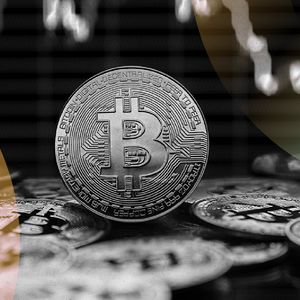XRPL Validator: XRP Is Not A US-Based Crypto, It’s a…
3 min read
In a firm rebuttal of persistent misconceptions, XRPL validator Vet has clarified that XRP is not a U.S.-based cryptocurrency. Instead, Vet describes it as a neutral, counterparty-free digital asset with no jurisdiction and no issuer. The clarification, posted on X, challenges the widespread notion that XRP’s identity is inherently tied to the United States, largely due to Ripple, the leading company building on the XRP Ledger (XRPL), being based there. Vet emphasized that XRP’s origins and technical design make it fundamentally different from most digital assets. XRP was fully issued at inception in 2012 and does not rely on any central authority, government, or corporate entity for its issuance or operation. As a result, XRP is not subject to any single country’s regulatory oversight, including that of the United States. XRP’s Architecture: Borderless by Design At the core of Vet’s explanation is the architecture of the XRP Ledger. The XRPL is a decentralized, open-source blockchain that requires no permission to use or build on. XRP, its native token, plays a critical role in facilitating transactions, liquidity, and spam prevention, but it exists independently of any issuer. No company or consortium can revoke XRP, alter its supply, or dictate its function. XRP is not a US based crypto. It’s a neutral and counterparty free crypto, with no jurisdiction as there’s no issuer. — Vet (@Vet_X0) June 29, 2025 This design makes XRP unique among many other digital assets, particularly those with centralized issuers or algorithmic controls that respond to human governance. Vet argues that this neutrality means XRP cannot be accurately categorized as a U.S. crypto, even though Ripple, the most prominent XRPL-focused company, is headquartered in San Francisco. Legal Context: Ripple Case and Global Adoption Vet’s comments come at a pivotal time in XRP’s legal narrative. In 2020, the U.S. Securities and Exchange Commission (SEC) sued Ripple, alleging that the company had conducted unregistered securities sales through XRP. This case fueled public confusion over whether XRP itself was a security or a U.S.-regulated asset. However, in July 2023, Judge Analisa Torres ruled that XRP is not a security when sold on exchanges or in programmatic sales, separating the asset from Ripple’s institutional actions. That ruling reinforced the view that XRP is a standalone digital commodity, not a corporate-issued instrument subject to U.S. securities laws. We are on twitter, follow us to connect with us :- @TimesTabloid1 — TimesTabloid (@TimesTabloid1) July 15, 2023 Meanwhile, XRP continues to be used globally, particularly in Ripple’s On-Demand Liquidity (ODL) corridors spanning Latin America, Europe, the Middle East, and Asia. These use cases illustrate XRP’s true value: a neutral bridge currency optimized for frictionless, cross-border payments. XRP Exists Beyond Borders Vet’s assertion is both a technical and philosophical reminder. XRP was designed to serve the world, not to operate within the boundaries of any specific legal regime. Its neutrality, lack of counterparty risk, and decentralized nature make it a digital asset without allegiance or limitation. While Ripple remains a key player in the XRP ecosystem, XRP itself is not a U.S. product; it is a borderless, jurisdiction-free tool for global finance, exactly as it was intended from day one. Disclaimer : This content is meant to inform and should not be considered financial advice. The views expressed in this article may include the author’s personal opinions and do not represent Times Tabloid’s opinion. Readers are urged to do in-depth research before making any investment decisions. Any action taken by the reader is strictly at their own risk. Times Tabloid is not responsible for any financial losses. Follow us on Twitter , Facebook , Telegram , and Google News The post XRPL Validator: XRP Is Not A US-Based Crypto, It’s a… appeared first on Times Tabloid .

Source: TimesTabloid



